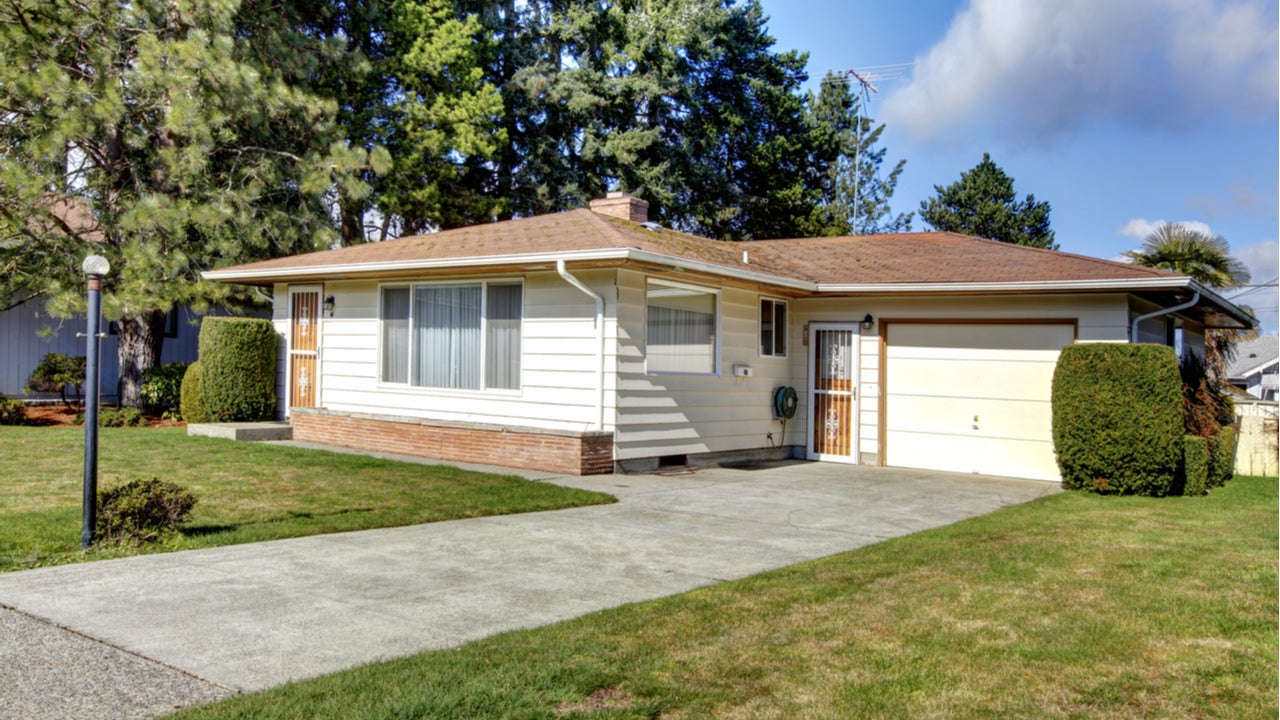How much is title insurance, and why do you need it?

Key takeaways
- Title insurance is designed to protect a piece of property against past claims that may surface, such as a lien from a contractor, an heir that believes it belongs to them or a property line issue.
- Title insurance comes in two forms: a policy that protects the lender and a policy that protects the owner/borrower.
- While lender’s title insurance is usually required, owner’s title insurance is optional. However, most real estate experts agree that the price tag — which typically amounts to between 0.5 percent and 1 percent of the purchase price — is well worth the investment for potential troubles down the road.
When you buy a home, its legal ownership hinges largely on the house title. Title problems can have significant consequences — the last thing you want is to have someone else come forward claiming ownership of your property. To avoid landing in court trying to figure out who truly has legal rights to your house, title insurance can come to the rescue.
What is title insurance?
Title insurance is just what it sounds like: insurance for your home’s title. If issues come up — say an unknown heir comes forward, or you discover a lien on the property — the insurance policy typically pays for the legal proceedings needed to sort things out.
As part of the process of securing a mortgage, a title company is usually contracted to perform a title search on the property being purchased. This means buyers should know about any issues before they close on a house. Ideally, the house will come back with a clear title, meaning no one other than the seller has a claim to ownership. Even so, mistakes happen and things sometimes get missed, so it’s smart to have safeguards in place.
“Buyers should think about title insurance as protection against the property’s ‘hidden past,’” says Shaun Michael Lewis, CEO of Montana-based Clearwater Properties. “While it is true that a home inspection reveals physical problems that can be visually observed, title insurance protects against legal problems that you often cannot see.”
Lewis has seen clients encounter challenges with mineral rights disputes, easement issues and incorrectly drawn property lines. “Title insurance is the only insurance that you can buy that protects against problems that happened before you owned the property,” he says.
Lender’s title policy vs. owner’s title policy
If you’re financing your home purchase, your mortgage lender will almost certainly require a lender’s title insurance policy to protect itself against possible claims. However, this policy only protects the lender — it carries no benefits for you as the homeowner/borrower.
An owner’s title policy is what protects you, helping to cover the legal costs of potential title disputes. Generally, these policies are optional, but the peace of mind is worth the cost.
Learn more: How to buy a house in 2025
What does title insurance cover?
Generally, both lender’s and owner’s title insurance policies cover the most common disputes filed against home titles. These can include:
- Outstanding liens
- Improperly recorded deeds
- Previously unknown heirs
- Conflicting wills
- Encroachments or easements
- Forged/falsified documents
“I’ve bought houses where an old lien popped up from a contractor the seller didn’t even remember hiring, or a previous heir surfaced claiming they still had rights to the home,” says Brett Johnson, owner of Colorado-based New Era Home Buyers. “Without title insurance, those problems become your problems.”
How much does title insurance cost?
The cost of title insurance depends on several factors, including what type you’re buying, the value of the house and your location. Lewis says that most owner’s title policies cost between 0.5 percent and 1 percent of the purchase price, with the majority of plans he has seen ranging between $1,000 and $4,000. It’s a one-time fee, though, unlike the recurring cost of homeowners insurance.
“When you consider an ownership period of 10 to 20 years, the [one-time] premium, when amortized over that period of protection, works out to be about $50 to $200 per year for what is complete protection against potentially catastrophic financial loss,” Lewis says.
Some states regulate title insurance costs with legally set rates that apply to the entire state. In those locations, the title insurance cost you get quoted will be the same from any title company, but you can still shop around for the best service. In states where title insurance cost isn’t regulated, you can get multiple quotes to find the best price.
According to an analysis from the Urban Institute, combined lender’s and owner’s title-related fees are cheapest in Missouri (an average of just $358) and most expensive in Pennsylvania, where the average cost is $3,496.
Tips for saving on title insurance costs
If you’re aiming to identify ways to shrink some of your closing costs, including your title insurance, here are some potential strategies:
- Ask the seller to cover it: Many areas around the country are beginning to shift in favor of the buyer, which means you may be able to get a seller to cover the cost of your owner’s title insurance policy. In some areas, it’s already the norm. Johnson says that sellers in the Centennial State often cover the expense.
- Compare multiple options: Ask your agent or lender if the cost of title insurance is set by the state. If not, it means you may receive different quotes from different companies. Shop around to make sure you’re getting the best coverage at the best possible price.
- Inquire about multi-policy discounts: Since you’ll be buying a lender’s title policy, see if the same company is willing to give you a break on an owner’s policy, too.
Who needs title insurance?
Mortgage lenders need title insurance, because they’re on the hook if something goes wrong with the home they’re putting up money for. Without this safeguard, a title dispute could mean someone else gets awarded ownership of your home. And since the house serves as collateral for the mortgage loan, that would be a big problem. Lenders typically require you to buy this protection as part of the closing process, so it’s in place right out of the gate.
Homebuyers should also seriously consider buying an owner’s title policy for themselves. Your home is likely a big part of your financial portfolio, if not the biggest, and ownership issues can be costly at best or catastrophic at worst. Your home is on the line. Johnson says that title insurance is something that “you don’t really appreciate until something goes wrong, and when it does, it can save your entire investment.”
Learn more: 10 key questions to ask when buying a house
Bottom line
Title insurance can give both you and your lender a big hedge of protection around the legal rights to your house. The cost can vary, depending on the state you’re in and your home’s purchase price. No matter how much you don’t want to pay for another fee, most experts agree that it’s worth it. “My advice to buyers is always this,” Lewis says. “No buyer should go without title insurance — ever.”
Why we ask for feedback Your feedback helps us improve our content and services. It takes less than a minute to complete.
Your responses are anonymous and will only be used for improving our website.
You may also like

What is vacant home insurance and how does it work?





